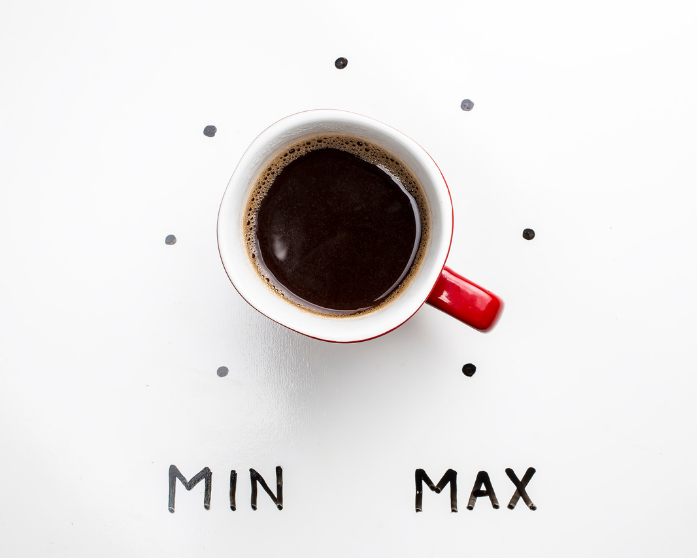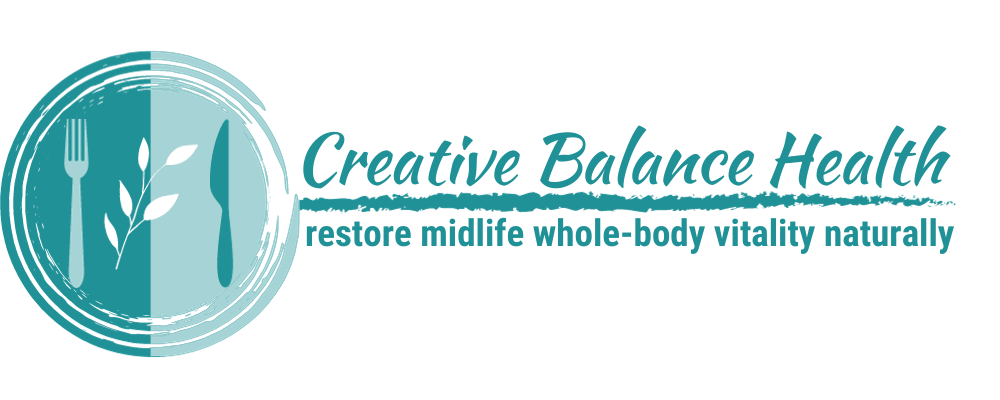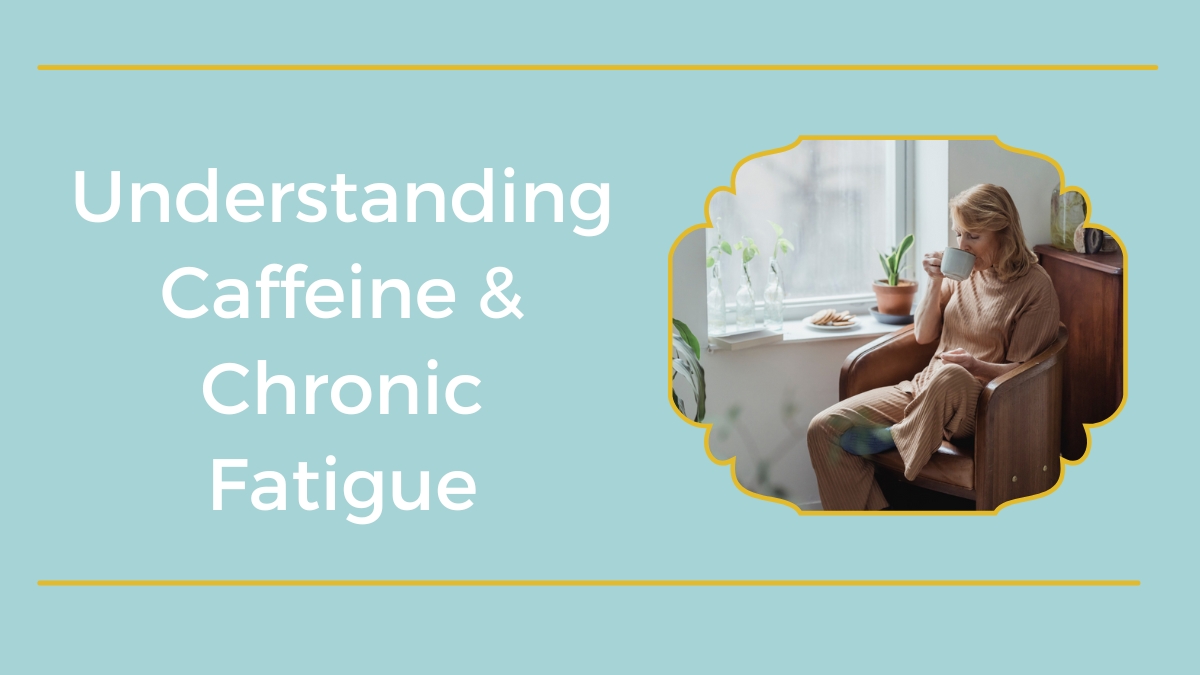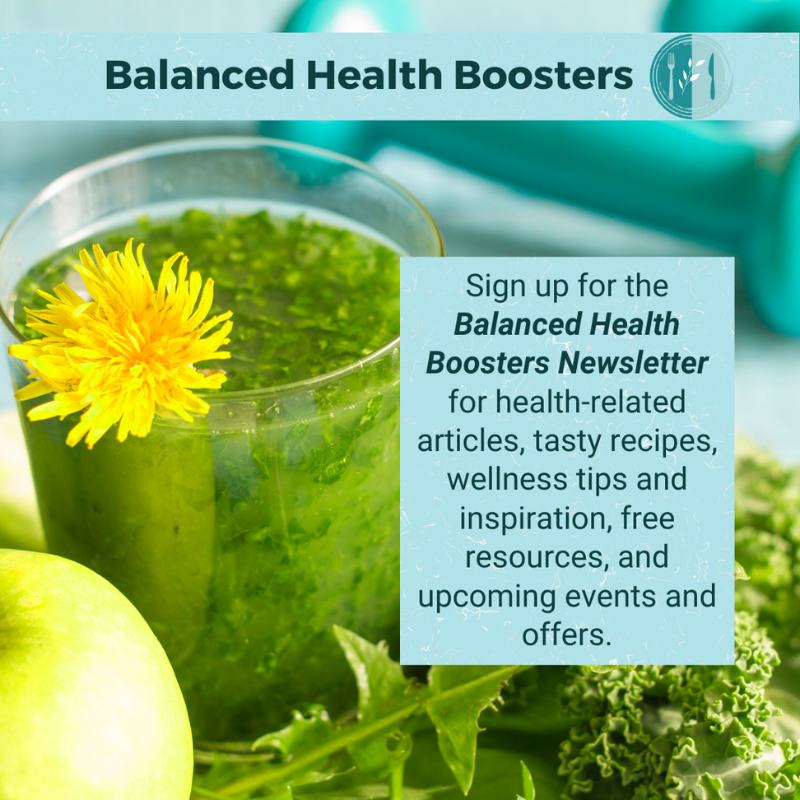In the trial and error of finding balance with caffeine and chronic fatigue, many middle-aged women discover the delicate dance of moderation.
Growing up in Massachusetts, I was always partial to coffee-flavored ice cream, a preference that hasn’t waned though I’ve since switched to non-dairy options. Interestingly, coffee is a popular ice cream flavor in New England. Now living in the Seattle area, I’m in the heart of a rich coffee culture, surrounded by exceptional local PNW coffee roasters. However, due to my own experiences with chronic fatigue, I’ve learned the importance of moderating my caffeine intake.
Managing caffeine consumption is a delicate balance for me. Despite the logical assumption that caffeine could combat fatigue, I’ve found that reducing or eliminating caffeine can significantly help in managing stress-related fatigue symptoms, improving my energy levels and focus.
Can you relate to the love-hate relationship with caffeine? Understanding how much caffeine is too much caffeine is crucial, especially during National Caffeine Awareness month.

Where Do We Find caffeine?
Caffeine is not just in coffee; it’s found in over 60 plant species and has been a part of human consumption since the Paleolithic period. Apart from coffee, caffeine is present in cocoa, soft drinks, energy drinks, sports foods, supplements, and certain medications aimed at headache relief, weight control, and more. It’s also a common ingredient in beauty products for its skin benefits.


The Link Between Caffeine and Chronic Fatigue
Caffeine quickly makes its way from the gastrointestinal tract to the bloodstream and then to various body tissues. It crosses the blood-brain barrier, affecting mental performance, mood, and possibly even providing protective benefits against diseases like Parkinson’s and Alzheimer’s. However, excessive caffeine can lead to anxiety, sleep issues, and dependence. (Read more

Understanding Tolerable Limits

For most adults, the FDA deems 400 milligrams of caffeine daily (about 4 cups of brewed coffee) as safe. Pregnant women are advised to limit their intake to 200 mg. The caffeine content in beverages and foods varies, so awareness is key to staying within these guidelines.
For comparison:
- 8oz of coffee contains 100 mg of caffeine
- 8oz of decaf coffee contains 2 mg of caffeine
- 8oz of hot chocolate contains 5-13 mg of caffeine
- 8oz of green tea contains 35 mg of caffeine
- 8oz of white tea contains 15-30 mg of caffeine
- a can of soda contains anywhere from 40-72 mg of caffeine
- energy drinks can range from 20-400mg+ of caffeine (yes, per drink!)
- and caffeine content of drugs varies from 16 mg to 200 mg per tablet

Personalizing Your Intake: Caffeine and Chronic Fatigue
When discussing caffeine and chronic fatigue, it’s important to highlight the personal nature of caffeine tolerance. What works for one person in managing their symptoms might not work for another. The relationship between caffeine and chronic fatigue is nuanced, requiring a personalized approach to consumption that considers individual health goals and sensitivities.
Individual tolerance to caffeine varies, so monitoring how you feel after consuming caffeinated products is important. If you find yourself feeling jittery or anxious, consider cutting back or opting for decaffeinated beverages or herbal teas. Read more, Stop “Inflammaging” in Its Tracks for Healthier Aging.

Selecting Quality Caffeine Sources
Opting for natural, whole-food caffeine sources like coffee, tea, or cacao can provide additional health benefits. Espresso might be a more stomach-friendly option due to its brewing process. Generally, it’s wise to avoid artificially sourced caffeine from sodas and energy drinks, which can lead to health issues including inflammation.
Timing Your Caffeine Consumption

The time of day you consume caffeine can affect your sleep quality. To minimize sleep disruption, consider consuming caffeine earlier in the day, ideally before noon.
Reducing caffeine intake might help if you’re experiencing low energy, sleep disturbances, or digestive issues. Listen to your body and adjust as needed for better overall health.
For more helpful information on getting the best sleep, check out 5 Reasons Your Health Needs Enough Sleep and Four Tips for Your Best Night of Sleep Yet.
So if you are struggling with low energy levels, disrupted sleep, or upset stomach you may want to try cutting back on your caffeine intake for a while and see if that helps to make a difference. You may be surprised at how much better you can feel and function! Otherwise, enjoy your cuppa!
In conclusion, navigating the relationship between caffeine and chronic fatigue is crucial for improving your quality of life. Understanding your personal tolerance and adjusting your intake accordingly can lead to significant improvements in managing chronic fatigue.

If chronic fatigue, digestive health, or weight management are concerns for you, and you’re unsure about the right dietary choices, I’m here to help. Let’s discuss your health situation and explore ways to improve your well-being. Click here to Schedule your Free Health Discovery Call with me to discuss your health situation and learn more.

SOURCES
1. Barone, J. J., & Roberts, H. R. (1996). Caffeine consumption. Food and Chemical Toxicology, 34(1), 119–129. doi:10.1016/0278-6915(95)00093-3
2-3, 5-6. Cappelletti, S., Daria, P., Sani, G., & Aromatario, M. (2015). Caffeine: Cognitive and Physical Performance Enhancer or Psychoactive Drug? Current Neuropharmacology, 13(1), 71–88. doi:10.2174/1570159×1366614121
4. “Caffeine.” The Nutrition Source, 12 Nov. 2020, https://www.hsph.harvard.edu/nutritionsource/caffeine/.
7-8. “Caffeine: Benefits, Risks, and Effects.” Medical News Today, MediLexicon International, https://www.medicalnewstoday.com/articles/285194#risks.







